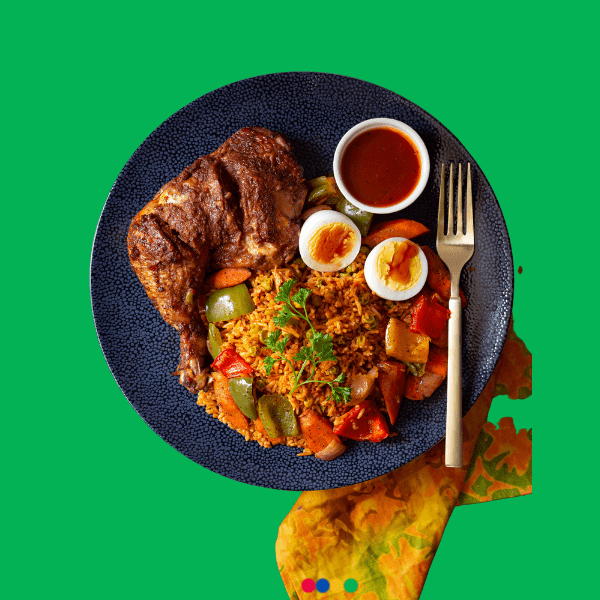“Don’t eat this, don’t eat that”, that’s all we seem to hear these days. You’d find all kinds of fad diets popping up every minute on social media. These social media nutritionists have done a great job at agonizing healthy foods. And it’s such a pity that we don’t filter or validate information before digging in. Frankly, I doubt there’s anyone who hasn’t fallen victim to these common nutrition myths at some point.
Here are common nutrition myths you’ve probably believed your whole life:
1. Don’t eat eggs because they will make you fat.
This particular myth made my mum stay away from eggs for over a year! According to her, some WhatsApp nutritionist said that eggs can make one grow excessively fat. It’s amusing how we believe these myths without validating them, lol. I understand that people believe that eggs cause unhealthy weight gain because of their cholesterol content.
However, eggs are great sources of proteins which help increase your metabolic rates significantly, thereby leading to weight loss. They are also great sources of vitamin D, vitamin B12, and choline, the brain-boosting nutrient.[1] Research has also shown that eggs can make you feel fuller thereby reducing your appetite and increasing your chances of losing weight. Eggs are one of the healthiest and least expensive foods so you should never eliminate them completely from your diet unless your doctor advises so. They also help in building sex drive.
2. Avoid fat completely if you’re trying to lose weight.
This is no doubt one of the most common nutrition myths. But it sounds logical, right? Don’t eat fat if you don’t want to get fat. The idea is that a low-fat diet helps with weight loss. Truth is, fats can make you gain weight if you consume excess or the wrong type of fat.
Foods with unhealthy fat:
- Fried foods
- Processed foods.
- Baked foods
- Butter and margarine
Foods with healthy fat:
- Avocados
- Salmon
- Nuts
- Olive oil
- Eggs
However, fatty foods help improve satiety which means less hunger and lower chances of gaining weight. If you’re trying to lose weight, what you should avoid is highly sugary foods and consume fatty food in moderation. Fats have a ton of health benefits aside from weight loss. It helps your skin glow and improves muscle function and blood clotting. To top it up, fats also help our bodies absorb nutrients like Vitamin A, D, E and K from food.
3. Detox programs help you lose weight faster
You have probably heard of detoxification diets and their numerous benefits. Typically, a detox diet can help you:
- Eliminate toxins from the body.
- Lose weight
- Improve circulation.
- Relieve constipation.
That sounds like a good idea, right? Unfortunately, detox programs aren’t as effective as they sound and most times, they flop. A typical detox diet requires you to fast, consume fruits, vegetables, and fluids and stay away from solid food. The idea is to eliminate toxins from your body and help you lose weight in the process. It will actually help you drop a few pounds but you are likely to gain all that weight as soon as you get off the program. Detox programs are low in calories and protein. Hence they can frustrate your efforts at the gym, leaving you with little energy and no fuel for bodybuilding. They may even interfere with your body’s metabolic rate. [2] “Your body is an expert at getting rid of toxins no matter what you eat. The only detox diet that is worthwhile limits your consumption of processed and sugary food, replacing them with fruits and vegetables”. Says Dr Michael Smith
Bottom line is that you don’t really need a detox diet. There are so many healthy ways to cleanse your body and this isn’t one. Plus, most of them don’t work as much as they make you believe, just a bunch of empty promises.
4. Starving yourself will help you lose weight faster
Let’s get one thing right: there’s a huge difference between intermittent fasting and starvation.
- Intermittent fasting requires you to alternate between fasting and eating periods while starvation requires you to stay a long period without food.
- Intermittent fasting leaves your body in a small calorie deficit while starvation leaves your body in a large calorie deficit.
Starving yourself will definitely lead to significant weight loss but it may not help you keep it off. You may not be able to endure hunger for long, and you might just give in to temptation eventually. And at this point, you have higher chances of overeating which will eventually lead to weight gain.
If you’re still stuck on starving yourself, here are a list of things that may make you change your mind:
- Low metabolic rate: Your body needs food as fuel to keep it going so limiting food intake will cause a decline in your body’s metabolic rate.
- Loss of muscle mass: Due to insufficient protein intake, your body draws protein from your muscles leading to loss of muscle mass.
- Poor physical appearance: Starving yourself will make you lack vital nutrients which help in minor processes like hair and nail growth, skin health, and bone development.[3] Remember your goal is to lose weight, not to look down and out.
5. Don’t eat fruits or you will gain weight
Of all fad diets, this has to be the most ridiculous. I mean, why would anyone believe that eating fruits is bad? Some nutritionists argue that fruits contain sugar so they’d make you gain weight. That’s quite a valid point but the sugar(fructose) present in fruits is healthy because it’s unprocessed. The only time this sugar can be harmful is when taken in extremely large quantities. And that’s hardly possible because most people don’t even take enough fruits. You have no reason exempted from a fruit-filled diet are fructose intolerant patients.
6. Red meat is unhealthy
Sometimes I wonder why these nutritionists are always beefing with beef, lol. I remember how we used to look forward to the festive seasons. It was a time when we could eat as much meat as we desired, a time when mama would cook over 3 different types of meat in a pot of stew. Only for our joy to be cut short by nutrition myths telling us that meat is bad for us! Truth is, meat can be unhealthy but only when it is saturated with fat. In other words, what you should be avoiding is fatty meat and fried meat. If you’re trying to lose weight and build muscle, you’re going to need a high-protein diet and lean beef is a great choice to start with. Aside from its high protein content, beef is rich in vitamin B12, creatine and zinc.[4] Other examples of red meat other than beef are mutton, goat, lamb, veal, and pork. And they are just as healthy as beef. Pork and goat are high in iron, protein and vitamin B12. [5] [6]
Bottom line is whichever diet plan you choose to adopt, ensure that you’re not completely cutting out any food class. Always remember that when it comes to healthy eating, moderation is key.
















No Comments
Leave a comment Cancel